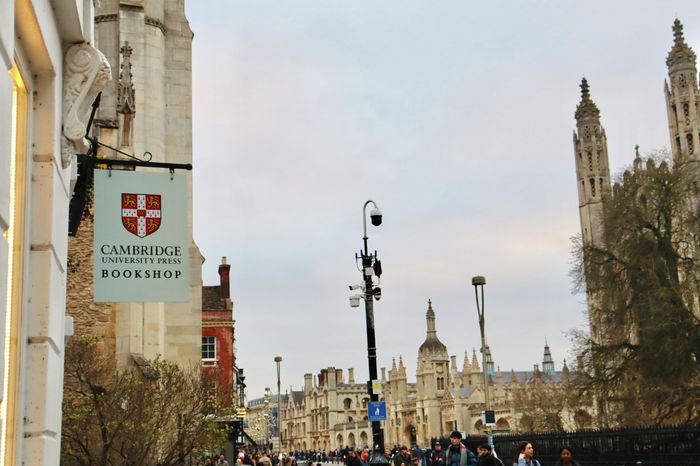Cambridge by-fellow fails in bid to sue Homerton for discrimination
The judge ruled that by-fellowship cannot be equated with being an employee or worker at a college

A by-fellow at Homerton College has failed to convince an employment tribunal that her adjacent fellowship position made her an employee, blocking her from bringing discrimination claims against the College.
Catherine MacKenzie, representing herself, claimed that her position as a by-fellow at Homerton College gave her the right to pursue unidentified discrimination claims after her contracts as Director of Studies and as a graduate student tutor ended. However, the tribunal rejected her attempt.
Employment Judge Sarah George ruled in a decision published earlier this month (05/12) that MacKenzie had no right to bring claims under the Equality Act. This was decided because her status as a by-fellow, which she held in addition to her Director of Studies and tutoring roles, did not make her an employee or worker at the College.
According to the University of Cambridge Library, the official definition of a by-fellow is a fellow who is “not on the foundation of a College, who may or may not have fewer privileges than a full fellow,” and who “takes no part in the government of the College”.
According to Law360, Cambridge offers the by-fellowship to researchers with PhDs or similar standing in their fields as they are more likely to be of “intellectual and practical value to the college”.
MacKenzie was originally hired by Homerton as a Director of Studies in the Land Economy department in 2010 where she has worked until this year. She was also hired as a Director of Studies in Law between 2019 and 2023, and taught part-time students before becoming a by-fellow in 2015.
However, the tribunal ruled that there was no formal documentation setting out her fellowship obligations and no intention to create legal relations when the College offered MacKenzie the fellowship. This made her circumstances different from those of other lecturing and tutoring roles.
The letter sent to MacKenzie concerning her appointment as a by-fellow outlines perks and privileges such as free meals and access to the library, but does not impose any obligations on her apart from requiring a promise to uphold an oath, according to the judgment.
There was a “vague expectation” that fellows contribute in a way that positively affects and benefits the interests of the College, however, according to the judgement, MacKenzie did not carry out any activities that were “solely” in her capacity as by-fellow.
MacKenzie was granted payment for her supervisory work which she did in her by-fellowship role. However, there was no expectation that she receive work or that she must agree to carry it out, the judgement says.
The judgement ruled that MacKenzie’s other roles in the University which she did in exchange for pay and her evidence about the work she conducted was more in line with the duties she claimed to have.
The judge ruled that “MacKenzie could not point to a single example of paid work she carried out as a by-fellow which she had not carried out because of her other positions.” In the end, the tribunal ordered her to pay £2,940 in costs.
This is not the first time MacKenzie has brought legal proceedings over her work contracts. In 2015, she won an unfair dismissal claim against the University after being fired from her job as a Law lecturer two years prior.
The tribunal ordered the University to reinstate her in her role as a Law lecturer. However, in 2019 the Court of Appeal ruled that it was not possible to force the University to re-engage her despite unfair dismissal.
 News / Clare Hall spent over £500k opposing busway 24 December 2025
News / Clare Hall spent over £500k opposing busway 24 December 2025 News / Caius mourns its tree-mendous loss23 December 2025
News / Caius mourns its tree-mendous loss23 December 2025 Comment / The ‘class’ of Cambridge24 December 2025
Comment / The ‘class’ of Cambridge24 December 2025 Comment / Yes, I’m brown – but I have more important things to say22 December 2025
Comment / Yes, I’m brown – but I have more important things to say22 December 2025 Interviews / Politics, your own way: Tilly Middlehurst on speaking out21 December 2025
Interviews / Politics, your own way: Tilly Middlehurst on speaking out21 December 2025










